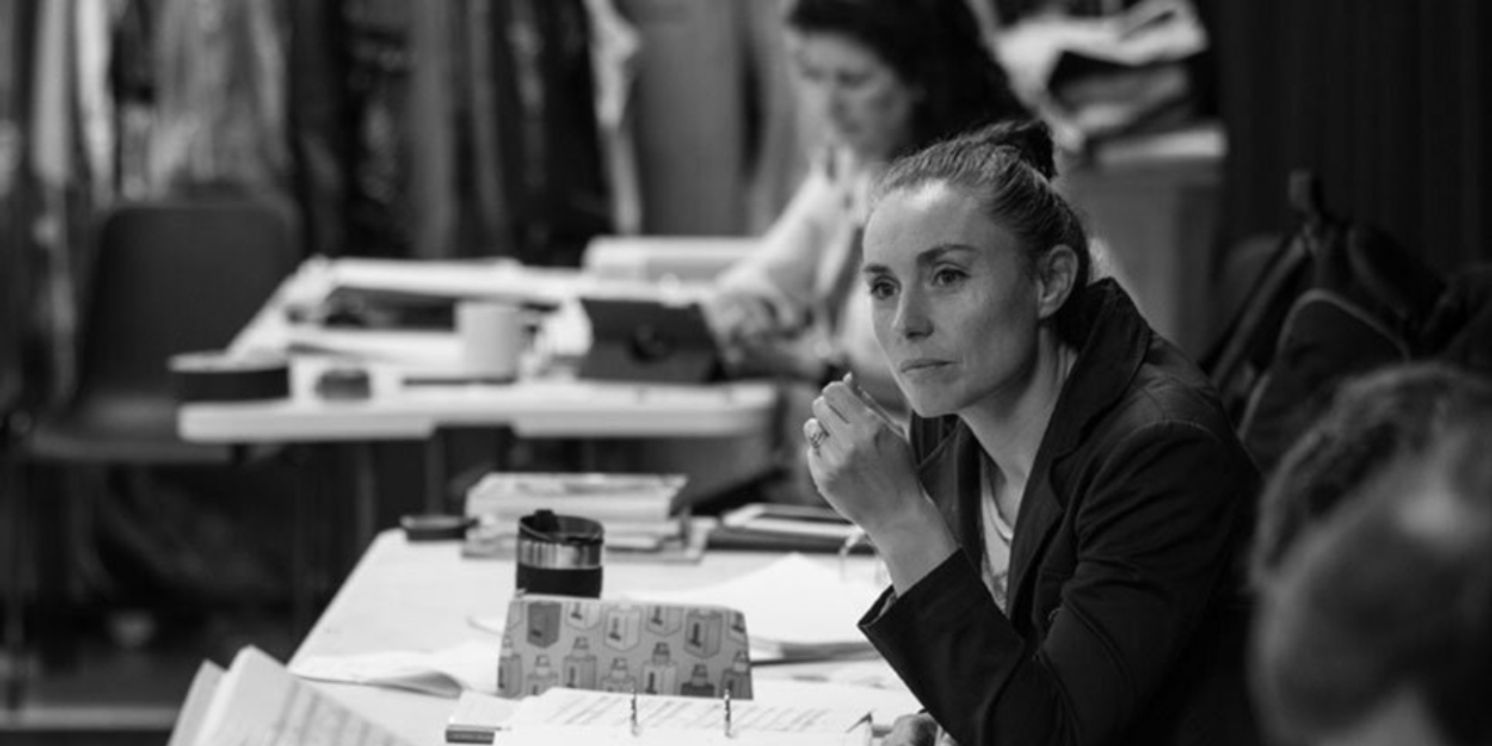Guest Blog: 'The Rehearsal Process Has Been a Joy': Director Anna Morrissey on NO PARTICULAR ORDER
'I hope the audience reflects on power: who holds it, who doesn’t, and what kind of world we want to create for each other.'

My name is Anna Morrissey, and I’m the director of No Particular Order, written by Joel Tan. The play takes place in a near-future world, moving across 30 years, and finally 300 years into the future. What’s intriguing about the story is that it doesn’t occur in any specific place—hence the title—but rather in a shifting, almost timeless landscape. At its core, No Particular Order is about the rise of authoritarianism, and how we resist it, often through small but significant acts of defiance. It also explores the vital role of art in resisting oppressive systems.
Joel Tan, as a writer, is fascinated by the patterns of history—those moments when societies swing between authoritarianism and democracy. We see this ebb and flow in today’s political environment, with the rise of populism, ethno-nationalism, and anti-immigration sentiment in many countries. This play highlights those dynamics, showing how people get swept into these movements, but also how resistance can come from everyday individuals.
What’s unique about this piece is that we don’t meet political leaders or figures of great power. Instead, it’s about "normal" people—teachers, writers, creatives—just trying to live their lives. Some scenes are set in supermarkets, others with writers contemplating the role of their work in acts of resistance. The characters are people like you and me, struggling to make sense of their world. Through their stories, I hope the audience reflects on power: who holds it, who doesn’t, and what kind of world we want to create for each other. It’s about how we treat one another, and how we can all connect to our shared humanity.
%20David%20Monteith-Hodge%20Photographise.jpg?format=auto&width=1400)
Photo Credit: David Monteith-Hodge Photographise
As for the production itself, we’re working in an incredibly collaborative environment at Guildhall School of Music & Drama. Our creative team—including lighting, sound, video, music, and set design—has come together to create a cohesive stage language. I’m particularly proud of the work we’ve done with Charlotte Henry, our brilliant set and Costume Designer. We’ve crafted a unified vision, with each element supporting the others rather than standing out individually. The collaboration between our composer and sound designer, Lian Dyogi and Jan Robotycki, is a standout as well. The script offers a huge invitation to build an immersive sound world, and I believe the result will be something that truly resonates.
The rehearsal process has been a joy. The Guildhall School actors have been dedicated and disciplined, and it’s been such a pleasure to work with them. We’ve spent a good amount of time doing text and table work, along with fight choreography led by Kev McCurdy and intimacy direction with Lucy Fennell, both of whom have been wonderful collaborators. Lucy, in particular, has been instrumental in guiding us through a challenging scene—without giving too much away, it involves a complex moment of intimacy between two soldiers. She’s handled it with such care, ensuring the process is safe while also creating something that’s powerful and dramatic.
A typical rehearsal day often begins with an hour of company warm-ups, where we come together as an ensemble to do voice and movement work. The play is structured as a series of short scenes, with only two or three characters appearing in each one. There isn’t a single narrative arc, so it’s important for us to maintain a strong ensemble energy. We do improvisational work, often led by our voice coach Aled Pedrick or movement director Diane Alison-Mitchell. This helps the actors stay connected to each other and the space.
One of the techniques I encourage is what I call “investigating the iceberg.” Often, there’s a deceptively simple line in the script, but beneath that line lies a world of emotion, memory, and subtext. We spend time unpacking these layers, asking the actors to explore what’s under the surface. For instance, there’s a scene with a mother and father who have lost a son. They don’t talk about it directly, but the weight of their loss is present in every line they speak. It’s our job to find those unseen parts of the iceberg and bring them to life.
We also do a lot of improvisation around images. In one scene, a protester talks about a square they used to visit, so we improvised creating that square, complete with the café, the birds, and all the details that bring the memory to life. The more vivid those pictures are for the actors, the more they can connect to their characters, and ultimately, the more powerful the experience becomes for the audience.
It’s been a rewarding process so far, and I’m excited for what’s to come. This play asks important questions about power, resistance, and humanity, and I hope audiences will leave feeling both challenged and inspired.
No Particular Order, directed by Anna Morrissey, runs until 26 October at Milton Court Studio Theatre, Guildhall School of Music & Drama
Videos

